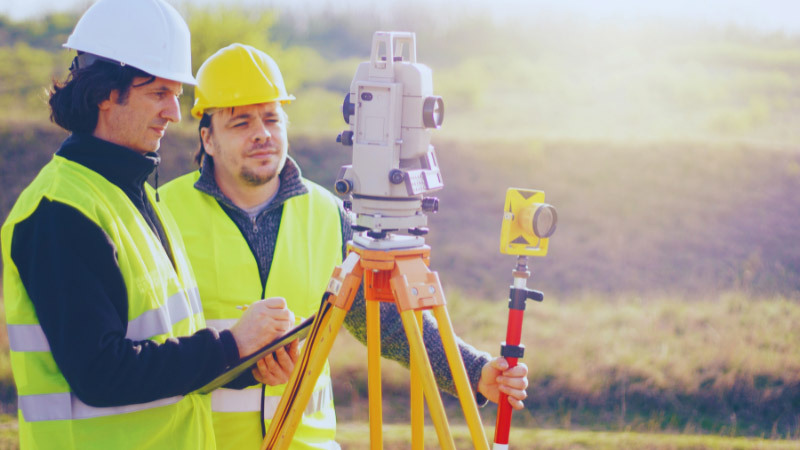Land surveying, an ancient yet ever-evolving practice, serves as the foundational bedrock for diverse industries, offering critical insights into terrain, property delineation, and development. In this article, we delve into the intricate world of land surveying, exploring its methodologies, challenges, technological advancements, and the pivotal role it plays in shaping our landscapes.
Introduction to Land Surveying
Land surveying, steeped in historical significance, emerges as a fundamental discipline pivotal in defining property boundaries, assessing terrain characteristics, and aiding in construction and development endeavors. Over millennia, this practice has evolved from rudimentary measurements to sophisticated technological interventions.
Types of Land Surveys
Surveyors employ various methodologies tailored to distinct purposes. Boundary surveys establish property lines, while topographic surveys capture terrain features and elevations. Construction surveys facilitate accurate project execution by mapping site conditions and verifying structural alignments.
Methods and Technologies Used
Traditionally reliant on chains, theodolites, and levels, modern surveying embraces cutting-edge tools like GPS, LiDAR, and drones, revolutionizing accuracy, efficiency, and data collection capabilities.
Role of a Land Surveyor
A land surveyor embodies a blend of technical expertise, problem-solving skills, and legal acumen. Their responsibilities encompass precise measurements, map creation, adherence to regulations, and ensuring spatial accuracy.
Applications of Land Surveying
From guiding real estate ventures to aiding infrastructure development and environmental conservation, land surveying proves indispensable across diverse sectors, ensuring informed decision-making and sustainable planning.
Challenges in Land Surveying
Navigating legal complexities, addressing terrain challenges, and maintaining data accuracy amidst dynamic environmental conditions pose significant hurdles in the field of land surveying.
Advancements in Land Surveying
Integration of AI, machine learning, and enhanced data processing techniques marks a paradigm shift, augmenting surveying capabilities and expediting project timelines.
Future Trends in Land Surveying
As automation and precision become paramount, the future of land surveying unveils promising prospects in robotics, further elevating accuracy and streamlining operations.
Benefits of Accurate Land Surveying
Beyond preventing property disputes, accurate surveying ensures construction safety, aids in environmental conservation efforts, and fosters sustainable development.
Cost and Time Factors in Land Surveying
Acknowledging the impact on project timelines and cost implications, advancements in surveying techniques continue to drive efficiency and accuracy.
Ethical Considerations in Land Surveying
Emphasizing professional standards and ethical conduct, surveyors play a pivotal role in ethical land-use planning and environmental impact assessment.
Global Perspectives in Land Surveying
Diverse surveying practices worldwide exhibit cultural nuances, posing challenges that demand cross-cultural understanding and adaptation.
Educational and Career Opportunities
Embarking on a career in land surveying requires specialized education, offering diverse career paths and opportunities in a technologically advancing field.
Notable Land Surveying Projects
Exploring iconic surveying endeavors worldwide highlights the transformative impact on societies, infrastructure, and development.
Conclusion
Land surveying stands as an indispensable discipline bridging historical practices with cutting-edge technology, navigating challenges, and shaping landscapes with precision and foresight.
FAQs (Frequently Asked Questions)
- What is the primary purpose of land surveying? Land surveying primarily aims to define property boundaries, assess terrain characteristics, and aid in construction and development projects.
- How has technology transformed land surveying practices? Technological advancements like GPS, LiDAR, and drones have significantly enhanced accuracy, efficiency, and data collection in land surveying.
- What challenges do land surveyors face in their profession? Legal complexities, terrain difficulties, and ensuring data accuracy amidst changing environmental conditions pose significant challenges for land surveyors.
- What are the future trends in land surveying? Future trends in land surveying involve increased automation, robotics, and precision enhancements to further elevate accuracy and streamline operations.
- How does accurate land surveying benefit society? Accurate land surveying helps prevent property disputes, ensures construction safety, aids in environmental conservation, and fosters sustainable development.

